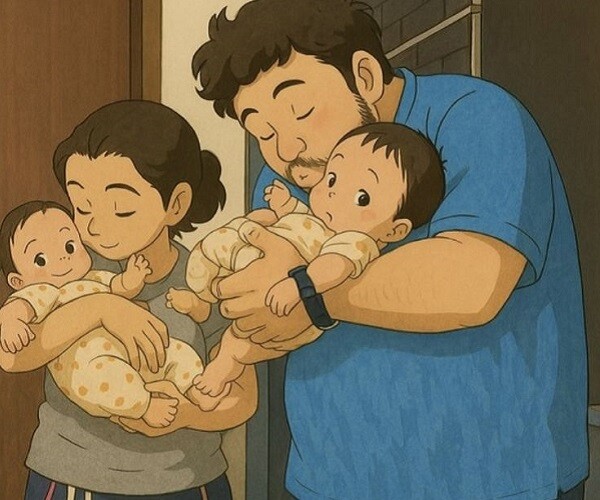Fathers who are patient and caring towards their children deserve recognition. Moreover, children who receive abundant love from their fathers tend to possess hidden strengths.
Accordingly, involved fathers bring three main benefits, forming a foundation for their children’s future success.


Fathers’ “tough love” can foster resilience in children.
For fathers, caring for their children is akin to survival training in the wild. Whether the water is hot or cold doesn’t matter, as long as the child gets bathed; falling down is not an issue as long as they get back up. If they can’t get up, dad is there to help but refrains from over-intervening.
This seemingly harsh parenting style actually teaches children how to endure setbacks.
Neuroscientific research reveals that after the age of three, children’s brains start developing a stress response system.
Overprotection can lead to a self-centric worldview, making it harder for children to cope with challenges later in life.
In contrast, a father’s non-interfering approach allows the child’s brain and body to experience the stress-resolution cycle multiple times, gradually building their ability to handle difficult situations.
These are valuable lessons learned through real-life experiences, fostering resilience, confidence, and problem-solving skills.
In essence, fathers who let their children face difficulties and challenges are providing them with a solid foundation for growth, encompassing physical, mental, and emotional development.

This seemingly harsh parenting style actually teaches children how to endure setbacks.

Fathers’ “unreliability” can promote better social skills in children.
While mothers tend to focus on polite interaction when caring for their children, fathers’ social rules can be quite different. If a child wants a toy, dad might not intervene immediately but encourage them to play with friends. Or, if the child is being bullied, dad won’t rush to their defense; instead, he’ll likely ask whether the bully meant to cause harm before deciding on a course of action.
In reality, this non-conventional social approach can foster higher emotional intelligence in children. In developmental psychology, the term “social reference theory” suggests that children learn social rules by observing the behavior of those around them.
Fathers are often better at teaching non-verbal communication and using humor to resolve conflicts, skills that help children navigate situations calmly and effectively.

Fathers are often adept at teaching non-verbal communication skills.

Fathers’ “love of adventure” encourages a spirit of exploration in children.
Research indicates that children with a penchant for exploration and learning tend to have brighter futures. For fathers, taking their children outdoors to climb trees, inspect bird nests, or dismantle old toys to understand their workings is an exciting journey of discovery.
Although it may entail some risks, this freedom allows children to play and explore freely, developing multiple skills and gaining valuable experiences.
Neuroscientific research shows that when children explore new things, their brains release more dopamine, making them happier and more engaged in the process.

Exploration stimulates the brain to release dopamine, enhancing happiness and engagement.
Fathers often engage in activities that may seem meaningless but are actually fun and stimulating. Or they might indulge in pastimes that seem like a waste of time but are, in fact, nurturing scientific thinking and a passion for discovery.
Most importantly, adventurous fathers send a powerful message: “It’s okay to fail, try again!” This encourages courage and a growth mindset in children.
One of the biggest misconceptions in modern parenting is the notion that fathers are merely supporting actors, with reduced authority in child-rearing.
Therefore, experts encourage giving fathers more opportunities to care for their children, fostering a strong bond and creating precious memories. Active fatherly involvement brings joy and contributes to raising resilient, confident, and curious individuals.
In summary, fathers’ active participation in child-rearing not only strengthens the father-child bond but also lays the groundwork for their children’s success in life. A father’s love, patience, and guidance are pivotal factors in a child’s holistic development.
































